
The ChatGPT effect? Investors bet big on deep tech startups
An expert from Velocity Ventures believes new startups will build their business models on the chatbot.
Back in 2014, businesses focused on logistics tech and e-commerce were not as big, but when Ninja Van entered the picture, the startup scene saw a rise of entrepreneurs gravitating towards the sector. The same phenomenon will likely happen again in the current startup economy, but this time with deep tech—technologies requiring substantial investment in research and development.
In an interview with Singapore Business Review, Bennett Lee, investment director of Velocity Ventures, said there are going to be a “lot of new startups building upon the technologies of artificial intelligence (AI) and ChatGPT.”
Jeffrey Chi, Vice Chairman for Asia at Vickers Venture Partners, also believes that deep tech is set to flourish, especially since the sector already saw growth in 2022.
Raymond Moh, senior adviser to Cambridge Advisers Pte Ltd and serving as a mentor at Singapore University of Technology and Design, had a similar observation, saying that many of the emerging startups are “developing disruptive applications in the Web 3.0 space.”
“This includes deep learning applications to enhance the productivity of traditional processes and generate insights from untapped data that are conventionally stored in archives; blockchain applications to provide decentralised solutions to the traditional finance processes, and others create a whole new digital ecosystem and user experience in gaming and metaverse platforms; Internet of Things (IoT) applications in both household and commercial uses to provide convenience and enhance the longevity of high-value assets, respectively,” Moh said.
In this year’s edition of the Hottest Startups list, there are four enterprises categorised as deep tech, namely, NoviHealth, OncoShot, VFlowTech, and Olea.
Vickers Venture Partners is particularly looking for startups with innovative technologies in expanding fields such as biotech or healthcare, AI, advanced materials, robotics, photonics, and quantum computing.
Whilst deep tech has become somewhat popular amongst entrepreneurs and investors, Tan Shuo Yan, Deloitte Southeast Asia’s Innovation Senior Manager, said the industry is currently underinvested in.
“These technical industries will constitute the backbone of the next frontier of innovation in Southeast Asia, but there are still significant existing gaps in each industry to be bridged,” Tan said.
Going green
Apart from deep tech startups, Moh said that over the past year, there has been a ballooning number of “green” startups attempting to plug gaps in the environmental, social, and corporate governance (ESG) domain.
“[Startups] are capitalising on the regulatory ambitions of developed countries and countries with large carbon footprints,” said Moh.
One of the companies featured in this year's list that focuses on ESG is Handprint Tech.
In 2023, YTn believes that climate-tech and sustainability-related startups will “likely gain some traction as companies and governments all over the world double down on their sustainability efforts.”
Chi said startups with technologies associated with renewable energy are becoming increasingly interesting and attractive.
Vickers Venture Partners is interested in grid-level energy storage and geothermal innovations.
“One of the key issues with renewable energy sources such as solar and wind is its reliance on weather conditions. Efficient energy storage and geothermal solve those problems and provide for stable and dependent energy supply. These are game changers in the renewable energy world,” Chi said.
“As countries in the region continue to develop, there is increasing demand for electricity and a need to reduce carbon emissions. Geothermal energy can play a significant role in meeting these goals, and venture capitalists see the potential for strong returns on their investments. In addition, governments in Asia are also making efforts to increase their geothermal power generation capacity by providing incentives and subsidies to companies and investors who develop geothermal power projects,” Chi added.
Lee said startups must also focus on the “governance” side of ESG since there is a lot to be done in this aspect, considering the downfall of several big startups like FTX, Theranos, and Zilingo.
Healthcare remains a hit
This year’s Hottest Startup list also features a couple of healthcare startups like Safe Space, Intellect, and Ordinary Folk.
According to Moh, many of the innovations from healthcare startups are targeting front-end applications, such as AI for medicine, and relatively less on the supporting infrastructures such as regulatory compliance support.
“The area of regulatory support across…[the] medical sector is still lacking in terms of innovation and sophistication… Medical innovations such as biotechnology and cell gene therapies are also not keeping pace with the evolving needs of an ageing population. These require deep expertise that crosses multiple disciplines, heavy but patient capital, and longer gestation periods. Black swan events like the COVID-19 pandemic have raised the importance of new discoveries in defensive medicine,” Moh said.
“Deep tech startups who are committed to plunging in for the long term can leverage on their advanced technologies and partner with medical professionals to shorten the development lifecycle, with the aim to create profound impacts to treatment and medicine discovery,” he added.
Tan, for his part, said entrepreneurs should tap into innovations such as non-intrusive sensors, wearables, and diagnostics.
Whilst healthcare remained popular in 2022, Lee believes the sector will see a slowdown in the coming years, particularly on the telemedicine front.
He added that telemedicine’s pace of growth during the pandemic is “not going to be sustainable.” During the pandemic, telemedicine startups grew 400% to 500% year-on-year. Lee expects this growth to come down to a 150% to 200% range.
In Singapore, however, this will not be the case. Moh believes that health tech will be the next hot sector in the Lion City and it will continue “to receive good traction from investors as they deal with essential needs of the population.”
Moh, however, underscored that health tech is “confronted by the need to adapt to local medical regulations. “In that sense, [healthtech is] slower to scale regionally,” he added.
Fintech, still a frontrunner
Fintech also remains at the forefront of the startup economy, particularly in Singapore. In 2023, experts believe the sector will continue to grow.
“Fintech, in particular, WealthTech startups, that capitalise on the incoming wealth of the ultra-rich such as the burgeoning family offices in Singapore will also flourish,” Moh added.
“Another group of strong investment interest is ESG startups that aim to enhance the financial service offerings and the green loan decision-making of banks, in line with the country’s ambition to be net-zero,” he added.
Tan said adjacent fintech verticals, like credit scoring, buy-now-pay-later (BNPL), and earned wage access (EWA) will continue to grow as well.
The crypto-blockchain space, however, will likely hit a slump, according to Lee, adding that there’s a lot of risk at the moment with regard to crypto.
With the FTX collapse and regulations becoming stricter, Lee said startups will have a harder time entering the space.
On the brighter side, Lee believes there will be new innovative companies coming out of crypto which can use the technology more soundly,
Fintech also has a lot of scope for investment and innovation, particularly in areas such as digital banking, said Chi.
But since traditional financial institutions like large banks are also “adopting their solutions very quickly,” Chi said fintech startups will find the “space challenging and highly competitive, and in all likelihood, find it difficult to sustain their business on their own.”
Fundamentals to funding
As funding levels decrease in the current economic climate, entrepreneurs should stress-test their value proposition and refine their go-to-market plans, sharpen their go-to-market plans, and brutally cut excessive expenditures, according to Lee.
“This year, it's all about execution, talking about profitability and talking about what makes your business model viable. If you could do that, that would obviously attract investors' attention,” Lee said.
For Chi, the key to attracting inventors is to focus on “profitability and demonstrating a clear path to revenue growth.”
“In times of economic uncertainty, investors are often more cautious about investing in high-risk startups,” he said.
“Be transparent with your potential investors about the risks and challenges your business may face. Investors appreciate honesty and want to know that you have a clear understanding of the obstacles your business may encounter,” added Chi.
Tan, for his part, advised enterprises to create “painkiller products that solve core pain points, as opposed to vitamin solutions that are good to have.”
“[Venture Capitalists (VCs)] are looking for capital-efficient profitable startups that offer indispensable products and/or services. During tough times, people tend to cut back on discretionary products and focus on necessities. Startups that provide a tool, platform, or service that people and businesses need have better chances to raise capital.” Tan said.
Tan added that VCs will also be looking at startups that are capital-efficient and have a clear path to profitability.
““This means startups should avoid capital-intensive business strategies, such as expensive customer acquisition strategies, owning significant amounts of assets, and employing large numbers of talent. They will be held to even higher expectations of demonstrating potential for profitability, whether that be in healthy margins, or tapping on network effects to grow exponentially,” he added.
Entrepreneurs should continuously shape, or even pivot, their business model so that it can withstand disruption by market forces, said Moh.
“Investors generally have turned to be more cautious in measuring valuation and take longer time to select their perceived market segment leaders. Therefore, entrepreneurs may want to negotiate for larger investment size and face more dilution to buy time amid a gloomy climate,” Moh said.
For products that require a long gestation period but can really make a significant impact, [entrepreneurs] should not be deterred by the short-term view of venture capital firms who have targets and fund life limitations. They potentially can look out for the more ‘patient capital’ offered by family offices in Asia. The latter are looking for ventures that are aligned to the family’s mission and can make a good impact on the society, and less so on significant returns,” Moh added.
READ MORE: ‘Stand-off’ between VCs and entrepreneurs pushes funding volumes down








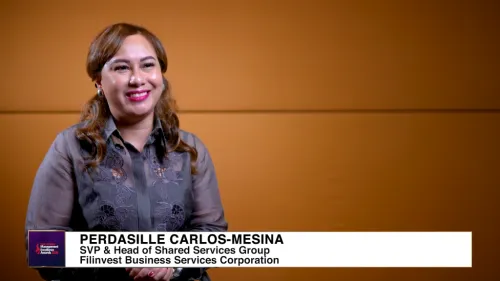

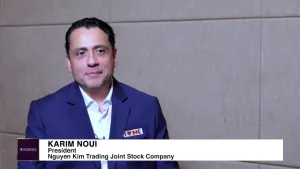
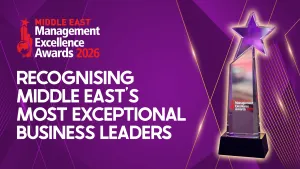
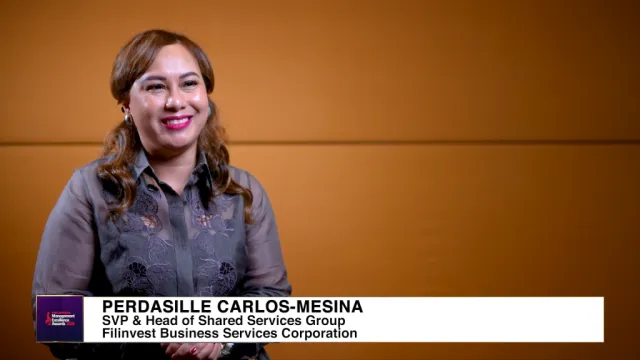
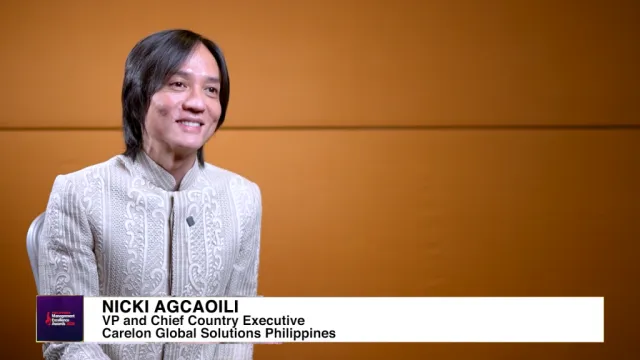



 Advertise
Advertise










